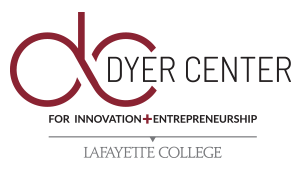An Investment in Education, Employability, and Impact

Bradbury Dyer III ’64
Times are changing. Global competition and technological advancements such as robotics, IoT (internet of things), and most impactfully, artificial intelligence (AI) are disrupting the nature of work and how we approach educating our students for success. Institutions of higher learning that ignore these drumbeats do so at their own peril.
Creative thinking and entrepreneurial risk-taking are increasingly valued in the workplace as organizations embrace innovation as an enduring competitive advantage. As more professional occupations are disrupted by AI, the ability to imagine, experiment, empathize, and lead will become paramount.
And for those who question the linkage between innovation and entrepreneurship, one only has to have witnessed the development of competitive, cost-efficient, private sector space delivery systems by serial innovators and entrepreneurs Jeff Bezos (Blue Origin), Elon Musk (SpaceX), and Richard Branson (Virgin Galactic).
Viewing the world of innovation and entrepreneurship from 30,000 feet, it has become the new frontier for global competitiveness. As evidenced by China’s Made in China 2025 plan, an initiative to comprehensively reshape its economy around innovation, and its efforts to focus college-level education on fostering mass entrepreneurship and innovation, the competitive road forward is indisputable.
Finally, there is the need for innovation to address many of our nation’s most pressing domestic challenges. Applying innovative thinking and entrepreneurial approaches to the problems of poverty, K-12 education, health care, or even DOD procurement holds great promise, as conventional attempts at solutions have failed.
These viewpoints were the impetus behind my recent multi-million dollar gift to create at Lafayette the Bradbury Dyer III ’64 Center for Innovation and Entrepreneurship, which supplants the former embryonic IDEAL Center for Innovation and Entrepreneurship.
To lead the center, we needed a director who understood and could navigate the challenges involved in creating a top-notch educational experience for students interested in innovation and entrepreneurship. A portion of my gift endows this position—the Bradbury Dyer III ’64 Director of the Center for Innovation and Entrepreneurship held by Yusuf Dahl.
Dahl has the passion, persistence, and unflagging commitment to excellence needed to lead this important initiative. He understands that building the center is an iterative process that requires the support of faculty, alumni, and administrators.
My financial support lays the groundwork for a much larger vision for the center. Lafayette is now actively recruiting an external advisory board to steward this important initiative and working with additional alumni to fund other strategic imperatives of the center. Together, I am confident the Lafayette community will make the Dyer Center the type of resource our students need and deserve: a best-in-class hub for curricular, co-curricular, and experiential learning opportunities that will prepare them to lead and thrive in a world that is quickly changing.
My path to the Dyer Center was not an overnight phenomenon. At first, I contemplated sponsoring an effort in my chosen career field, investment management. I quickly dismissed this road forward given that this is an industry with diminishing employment looking into the future.
Fortuitously, two of my longstanding friends, Sam Zell and Bob Lurie (d. 1990), were pioneering innovators in bringing entrepreneurial studies to the college/university scene. Finalists in their sponsored annual competition to develop a syllabus for teaching entrepreneurial studies populated many of the initial university/college efforts in this field.
Coat-tailing their sponsorship of the Zell-Lurie Institute for Entrepreneurial Studies at University of Michigan, I was able to quickly become conversant with the opportunities and challenges involved in developing a program for innovation and entrepreneurial studies. This is not a low-effort/low-cost aspect of the educational continuum. We must establish relationships with area business-development and business-incubator centers, develop curriculum and co-curriculum educational programs, host entrepreneurs-in-residence programs, establish a robust speaker program, and arrange summer internship affiliations, among other endeavors.
This wide-reaching initiative will benefit immensely from the support and participation of our alumni network, and I encourage any interested parties to contact Yusuf Dahl and help shape what I hope will become a distinctive feature of the Lafayette experience.
